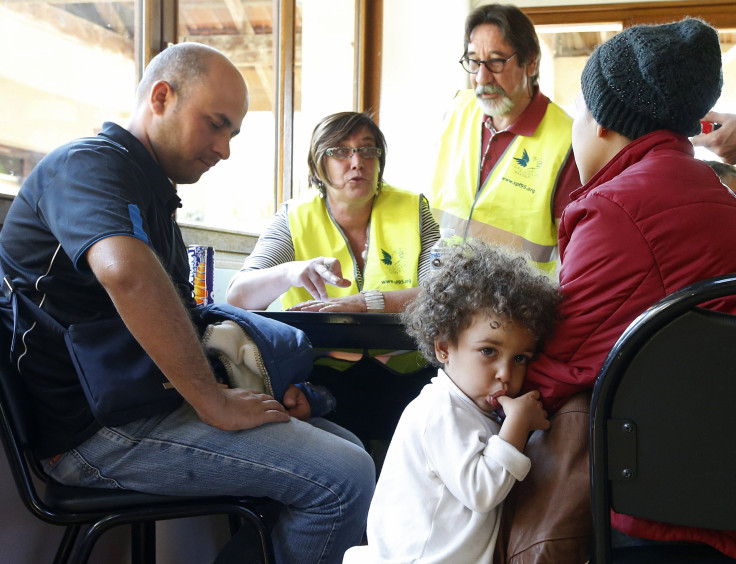France Announces Cash For New Refugee Housing, Following Germany's Lead

French authorities unveiled a plan to boost housing for tens of thousands of incoming refugees slated to arrive in the next couple of years. Speaking at a conference of mayors in Paris on Saturday, Interior Minister Bernard Cazeneuve promised city and town governments 1,000 euros for each new housing spot they provide to migrants from now until 2017, Agence France-Presse reported.
Cazeneuve also promised public and private housing providers the same amount for each new spot they provide, and said the government would create an investment fund to boost the creation of housing stock. He also said that Prime Minister Manuel Valls would unveil supplementary measures to boost the country's existing asylum-seeking housing program, which is overwhelmed in the face of new demands.
France has promised to welcome more than 30,000 refugees -- a small slice of the more than 4 million people displaced by the ongoing conflict in Syria and other war-torn countries in the Middle East. In July, the country said it would provide refuge to 6,750 asylum-seekers; earlier this week, as the number of refugees seeking shelter in Europe surged, President François Hollande announced a plan to welcome an additional 24,000 people.
Hundreds of refugees began arriving in France this week. That number pales in comparison to its largest neighbor to the East. About 800,000 refugees are expected to arrive in Germany by the end of the year, and the nation has said it could take in over half a million people annually over the next several years. In Germany, responsibility for housing migrants lies with state governments, which receive refugees according to their size and tax revenue. By most accounts, that system has run smoothly thus far.
As in Germany, France has faced some backlash from right-wing parties as it responds to the largest wave of refugees since World War II. Earlier this week, Marine Le Pen, popular leader of the far-right National Front, blasted the wave of "clandestine" migrants who she accused of entering Europe for "economic" reasons.
European Commission President Jean-Claude Juncker has proposed an expansion of the quota system that is currently in place for refugees. On Monday, interior ministers from EU member states will meet to discuss that proposal. In general, France, Germany and Italy support it, but smaller Central European states oppose it.
© Copyright IBTimes 2024. All rights reserved.






















